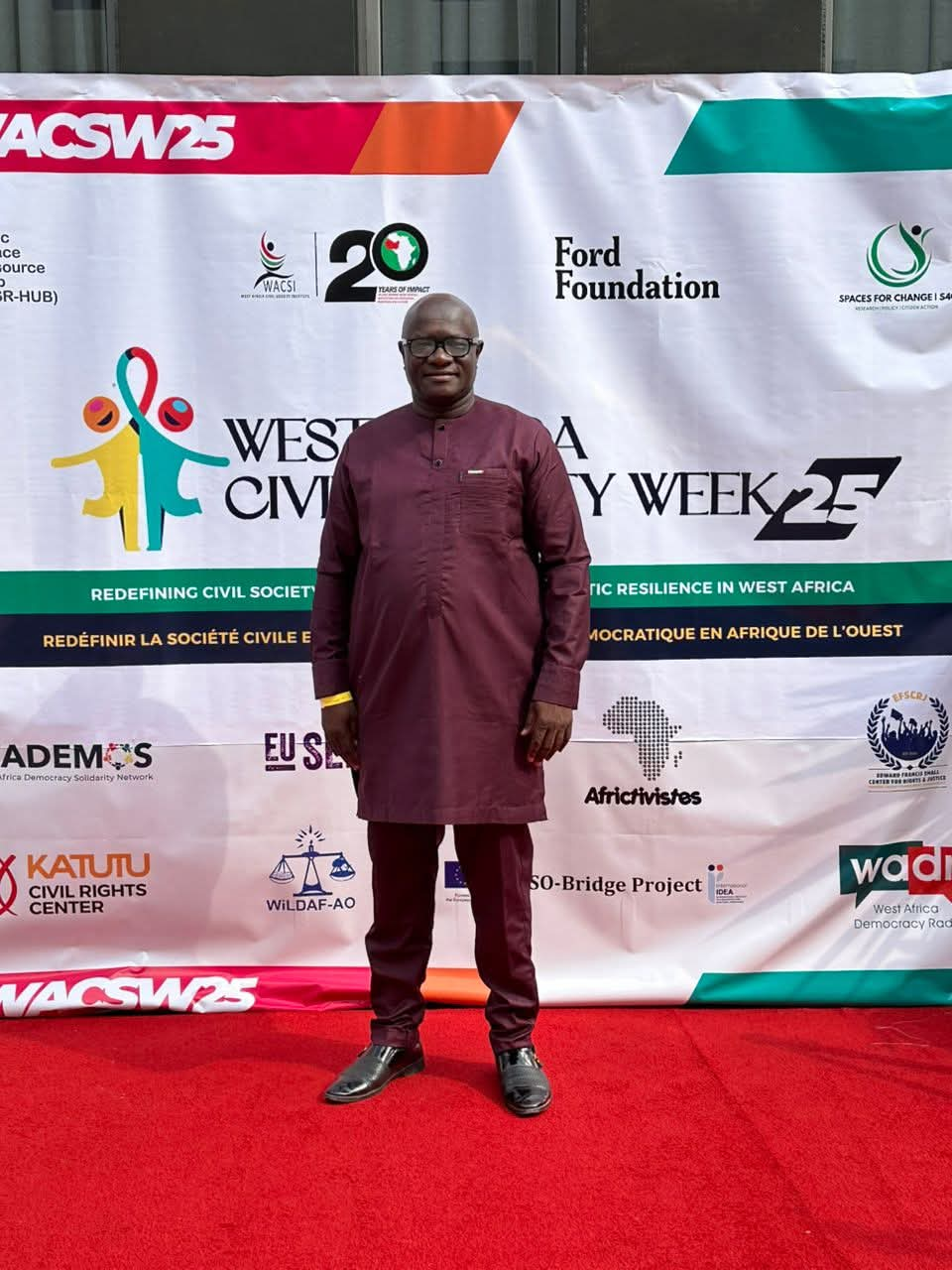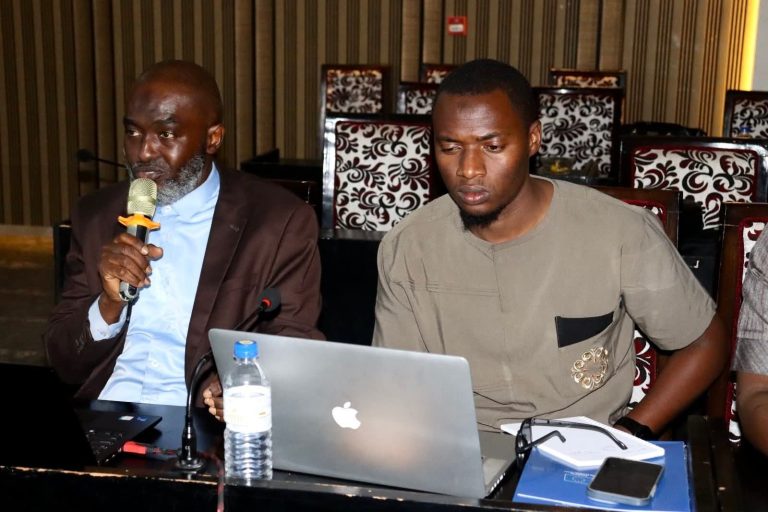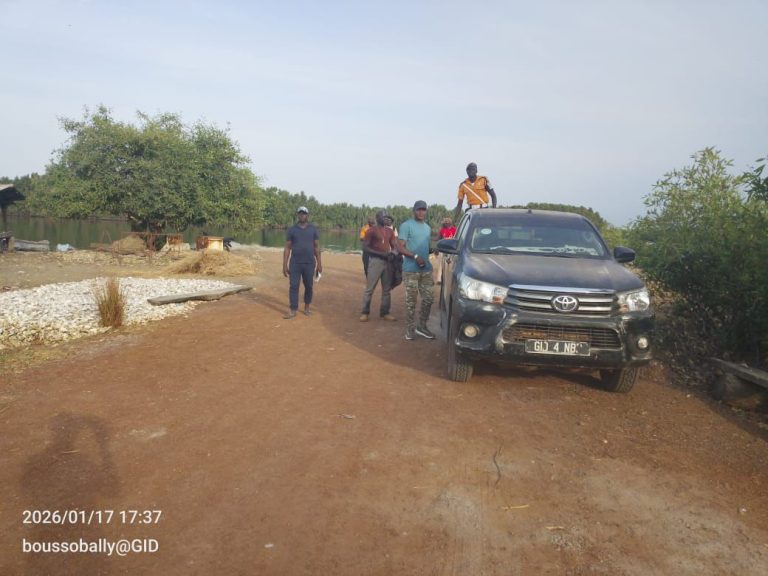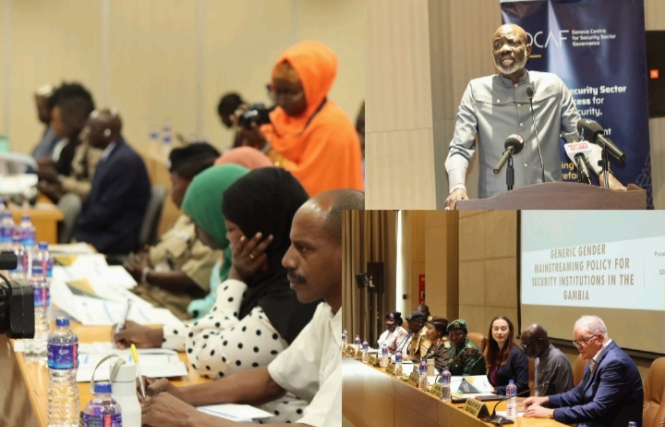
The Edward Francis Small Centre for Rights and Justice is honored to participate in the 2025 West Africa Civil Society Week, which officially opens today in Accra, Ghana, under the theme “Redefining Civil Society and the Future of Democratic Resilience in West Africa.” EFSCRJ serves on the Organizing Committee of this historic convergence and is represented by our Executive Director, Madi Jobarteh, who is a delegate and a panelist in the high-level session on Resources, Corruption and Accountability in West Africa.
For more than six decades since the end of colonial rule, West African states have struggled to translate political independence into sustained democracy, widespread prosperity, peace, and social justice. While the region has witnessed a remarkable expansion of civil society organizations and networks, this growth has not been matched by stronger institutions, accountable governance, or the meaningful protection of human rights.
Instead, West Africa today is confronted with:
• A resurgence of autocratic governance and unconstitutional changes of government;
• Widespread corruption, illicit financial flows, and elite capture of public resources;
• Persistent impunity despite democratic constitutions and legal structures;
• Weak and fragile state institutions unable to guarantee security or development;
• Rising poverty, unemployment, marginalization, and disillusionment among citizens.
These realities raise a fundamental question: Why has democracy remained fragile while development remains elusive even as civil society continues to grow in numbers, scope, and visibility?
West Africa Civil Society Week is therefore a timely and necessary platform to reflect, rethink, and reimagine the role, strategy, and responsibilities of civil society. The gathering brings together activists, researchers, policymakers, youth leaders, media actors, and development partners to explore new models of civic engagement, accountability, and democratic renewal that are relevant to the current political and socio-economic crises.
EFSCRJ believes that civil society must undergo its own transformation by moving from fragmentation to solidarity; from isolated activism to strategic coordination; and from rhetoric to evidence-based, citizen-driven, accountable, and transformative action. This convergence provides an essential opportunity to rebuild a collective regional agenda capable of confronting corruption, strengthening justice systems, defending constitutionalism, and advancing people-centered development.
As the Week unfolds, EFSCRJ reaffirms its commitment to championing accountability and anti-corruption reforms across West Africa. We seek to strengthen citizen participation in governance and continue to promote human rights, social justice, and rule of law, as well as building coalitions for democratic resilience and system change.
We extend our appreciation to the conveners, partners, and delegates who have come together for this critical reflection on the future of our region. The challenges facing West Africa demand courage, clarity, and collective action. This Week marks an important step toward shaping a renewed and resilient civil society that can deliver on the democratic aspirations of our people.
EFSCRJ – Standing for Rights, Justice, and Democratic Transformation in West Africa.




